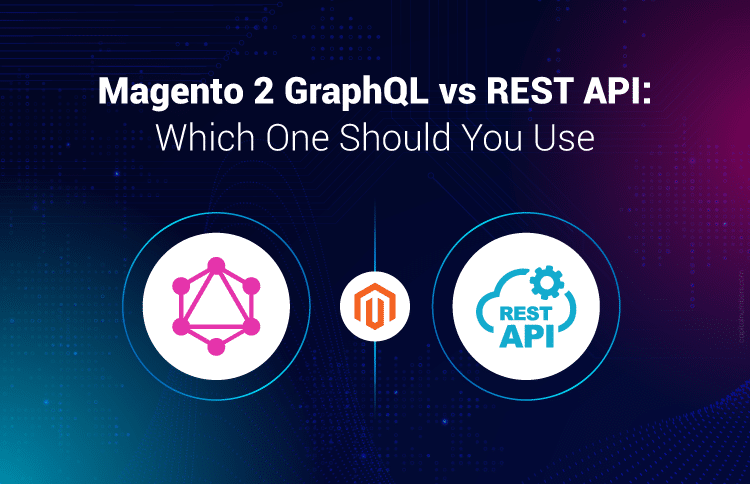How We Built Complex Solutions with Node.js: Proven Use Cases
Table of Contents
When it comes to building fast, efficient applications, Node.js is often our framework of choice. Its simplicity and flexibility make it a great fit for tackling various challenges. In this post, we will share how we use Node.js to build real-world solutions, focusing on the practical steps we take to meet our clients’ needs.
We’ll also share a few Node.js use cases, showcasing how the framework has helped us solve complex problems, improve performance, and deliver a great user experience. If you’re curious about how Node.js can work for your project, keep reading.
Our Approach to Building Complex Applications with Node.js
Our approach to building scalable applications with Node.js is all about simplicity, speed, and long-term growth. We focus on delivering the desired outcomes that meet user and business needs. If you’re looking to bring your project to life, our team of Node.js developers is ready to deliver custom solutions tailored to your unique business requirements.
Requirement Gathering:
We work closely with the client to understand their business objectives, challenges, and functional requirements. This helps us define the application’s scope and ensure we align with their vision.
Tech Stack Selection:
Node.js is our primary choice because of its scalability and high performance. We then select other technologies based on the complexity of the solution and the client’s specific requirements, ensuring that the tech stack is perfectly suited to meet the project’s goals.
Architecture Design:
Our team creates an architecture using Node.js that emphasizes flexibility, modularity, and ease of maintenance, ensuring it can adapt to future needs and grow with the project over time.
API Development:
We develop custom APIs to enable seamless communication between the application’s frontend, backend, and third-party services. This ensures smooth data flow and integration for a cohesive system.
Frontend and Backend Integration:
We integrate the Node.js backend with the frontend, ensuring efficient data handling, a responsive user interface, and a smooth user experience across platforms.
Testing and Deployment:
After rigorous testing, we deploy the application on cloud platforms like AWS to ensure high availability, scalability, and security. We also provide post-launch support for ongoing improvements.
Ongoing Support and Maintenance:
We offer ongoing maintenance and improvements to ensure the application runs smoothly as the business evolves. This includes adding new features, updating the system, and monitoring performance.
You May Also Read: Ready for Launch? How to Prepare Your Node.js Application for Production
5 Proven Use Cases of Node.js for Building Complex Solutions
Our skilled developers have created many complex solutions using Node.js. Each solution is tailored to meet our clients’ unique needs and deliver the desired results. Here are five Node.js use cases:
1. Car Insurance Comparison Application
- App Type: Web Application
- Industry: Insurance
- Problem:
The client has a car insurance platform that helps users compare insurance quotes instantly. But it fails to give fast, accurate, and real-time quotes that will engage users. Besides, data accuracy was a huge problem, as different providers labeled the same information in various ways. - Solution:
Our skilled developers understood the client’s problem and built a solution accordingly. We use Node.js to connect to various APIs and gather key data, such as car model, mileage, and location, even when they are coming from different formats. To ensure there is no mismatch, we created algorithms that identified and corrected errors automatically. We also used MySQL to organize and standardize the data. - Results:
We delivered the client a fast, easy-to-use car insurance comparison platform. With this, users can get accurate quotes in no time. The platform generates quotes 95% faster, saving users time and offering them a great experience. Also, as all insurance options are shown on one screen, it cuts the research time by 90%. What more? With 99.9% accurate coverage details, users can make informed decisions confidently. The platform offers transparent pricing with no hidden fees. Also, the real-time updates ensure users can select coverage without any delays.
Read the Case Study: Instant Car Insurance Comparisons for 95% Faster Decisions
2. RFID Barcode Tracking App for High-Value Assets
- App Type: Internet of Things (IoT) System
- Industry: Logistics/Asset Management
- Problem
The client has a SaaS-based asset-tracking app that helps companies monitor their inventory and personnel. However, accurate monitoring of high-value asset management was a challenge for this app. So, the client wanted to customize the solution by adding features like RFID data, Barcode data, GPS data, reports, and analytics. - Solution
After going through the requirements, we engaged four highly skilled developers for this task. We started by building the app backend for RFID data integration, barcode data integration, and GPS data integration. Then, we created APIs to sync third-party data and ensure accuracy. We also implemented microservices for better performance. Finally, we hosted the web portal on AWS and launched the mobile apps on Google Play and the App Store. - Results:
We developed a reliable real-time asset tracking system for the client. Our developers integrated RFID and barcode scanning to ensure instant updates on asset locations. This helps reduce the risk of lost or stolen items. We also set up automated alerts to notify users if an asset is misplaced or at risk. This improves security and response times. Using Node.js, we built a scalable app that performs well even during high traffic. We integrated cloud storage for secure data management and easy access for analysis and reporting. By automating tracking and alerts, we reduced human errors, making inventory management more efficient.
Read the Case Study: RFID/Barcode Tracking App to Monitor High-value Assets in Real-time
3. E-Commerce Order Fulfillment Application
- App Type: Web Application
- Industry: E-Commerce
- Problem:
The client wanted to build an order fulfillment app for eCommerce merchants. The challenge was connecting platforms to a shared supplier network in real-time. The goal was to automate order management, prevent delays, and keep data accurate. This would allow merchants to focus on growth while suppliers handled logistics. - Solutions
We created a smooth system that connected the supplier’s .NET system to a MERN-based order fulfillment app. Our developers built API connectors to sync product updates in real-time across platforms like Shopify, WooCommerce, and Wix. These connectors also automatically sent orders from e-commerce stores to the supplier for processing. We also created custom plugins to handle platform differences and added an Excel upload feature for bulk orders. This made order fulfillment fully automated, saving time and letting merchants focus on growing their business. - Results
The result is a simple system for e-commerce merchants that keeps product catalogs accurate and streamlines order fulfillment and dropshipping. With this, orders are easily routed from e-commerce platforms to the supplier system. The system consolidates all orders into one supplier network. It makes dropshipping easier. Also, it makes dropshipping easier and integrates with Shopify, WooCommerce, Wix, and more. Now, bulk orders are automatically sent to the supplier in real-time, eliminating delays.
Read the Case Study: Streamlined Order Fulfillment from Storefront to Doorstep
4. Mental Health and Wellness App
- App Type: Mobile Application
- Industry: Health & Wellness
- Problem:
The client wanted to build a wellness app for stress management. It should have various features such as self-care routines, relaxing music, and nourishing recipes. The challenge was to make it user-friendly and minimalist. The app also needed a community forum, quizzes, and an easy-to-use interface. - Solution:
Our developers created simple, user-friendly prototypes using Figma and the client approved it quickly. We built APIs using Node.js for scalability and Flutter for cross-platform support. For fast data queries, we chose MongoDB, and Firebase was added for push notifications. We integrated in-app purchases for seamless subscriptions. After thoroughly testing the APIs with Postman, we deployed the app to the App Store and Google Play Store, ensuring everything worked smoothly before launch. - Results
We delivered an easy-to-use wellness app that helps users manage anxiety and improve well-being. It includes stress relief quizzes to assess mental health, relaxing sounds like ocean waves, pre-recorded meditation audios for mindfulness, and a peer-support community. The app also sends push notifications with motivational messages and reminders to encourage consistent self-care.
Read the Case Study: Wellness App for Anxiety Management
5. Fintech App for Credit Score Monitoring
- App Type: Mobile Application
- Industry: Finance
- Problem:
The client wanted a Fintech app to help users track their CIBIL scores and credit health. The app needed features like OTP logins, financial profiles, credit utilization, and red flag alerts. The challenge was connecting the app to third-party APIs and using algorithms to analyze financial data. We also had to ensure a smooth, fast, and high-quality user experience. - Solution:
We began by analyzing the app’s needs and data sources. Our developers created wireframes in Figma and built the backend with Node.js and the frontend with React Native. Then, we integrated third-party APIs for financial data and CIBIL scores. We also used PostgreSQL for the database and added a payment gateway for subscriptions. After testing with real data, we deployed the app on AWS, ensuring everything ran smoothly. - Results
We created a user-friendly fintech app that helps users track their credit health and make informed decisions. With OTP-based login, users can quickly register and create a financial profile. They can view their CIBIL scores and receive real-time alerts for risks like high credit usage. Besides, premium users get detailed insights and expert advice to improve their financial health.
Read the Case Study: Fintech App for Viewing CIBIL Scores, Credit Reports, and Red Flags
Bottom Line
Node.js continues to shape the future of application development, offering unmatched speed, scalability, and real-time processing capabilities. With constant advancements and updates like Node.js 24, it remains the go-to solution for businesses seeking efficient systems. As more industries adopt Node.js, its role in driving innovation and enhancing application efficiency is only set to grow.
Our developers have worked on various Node.js real-world examples, creating solutions tailored to meet specific business needs. If you’re planning to build your next application with Node.js, we’re here to help. To discuss your project and see how Node.js can take your business to the next level, contact us today!

















